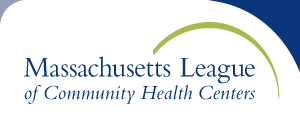Community health centers provide primary, preventive and dental care, as well as mental health, substance use disorder and other community-based services to anyone in need regardless of their insurance status or ability to pay. In Massachusetts, 52 community health center organizations provide high quality health care to some one million state residents through more than 285 sites statewide.
In addition to providing comprehensive health services to underserved people, health centers are at the leading edge of addressing some of the most vexing problems of our health care system, including facilitating access to health insurance coverage for low-income residents and eliminating health disparities between racial and ethnic populations.
In 1965, the nation's first community health center opened its doors in Boston, Massachusetts. Until that time, health services for low and moderate-income people in inner city areas and isolated rural communities were nowhere to be found. In response, community members organized around the need to bring primary care to their neighborhoods. Insisting that they have a voice in how and what care should be delivered to the community, boards of directors that included a majority of health center consumers were incorporated into the model. Today, health center patients continue to drive the mission and work of community health centers.
Community health centers are receiving increasing attention as a solution for reducing health costs and ensuring health care quality in Massachusetts and across the nation. Staffed by board-certified physicians, nurse practitioners, physician assistants, registered nurses, nutritionists, dentists and a range of other of medical and social service providers, community health centers excel at providing preventive care and chronic disease management in lower cost community settings. These savings are passed on to the state's Medicaid program and other insurers. For studies on health center quality and cost-effectiveness, please contact the League.
Massachusetts community health centers care for patients of all ages and racial and ethnic backgrounds, and represent a major source of care for medically underserved women and children. Health center patients are disproportionately low-income, publicly insured or uninsured, and are at higher risk for contracting chronic and complex diseases.
Board-certified physicians along with physician assistants, nurse practitioners and registered nurses lead highly skilled medical staffs at community health centers. Health center physicians are trained in a range of primary care disciplines, including internal, pediatric and family medicine, as well as gynecology and obstetrics. Health centers also employ social workers, dentists, optometrists, certified nurse midwives, community health workers, nutritionists, counselors and other health professionals to help improve health outcomes for their patients. In addition, health centers have strong referral relationships with their local hospitals and, in many cases, have specialists on staff such as dermatologists, psychiatrists, podiatrists, and ophthalmologists.
In order to address the complex health needs of the communities they serve, health centers work to screen, prevent and manage
chronic diseases like diabetes, asthma, HIV/AIDS, cancer and depression; reduce low birthweights in newborns; and offer a range of
programs and services that promote overall health and wellness, including:
| Pediatrics | Adult Medicine | Family Medicine |
| Obstetrics | Gynecology | Laboratory |
| Dental Care | Mental Health | Social Services |
| Dermatology | Podiatry | Acupuncture |
| Elder Services | Hospitalization | Home Care |
| Nutrition/WIC | Specialty Referrals | Public Health Programs |
| School Based Services | Pharmacy Services | Eye Care |
| Smoking Cessation | Immunizations | Fitness Programs |
| Substance Abuse Counseling & Treatment | HIV/AIDS Screening, Counseling & Treatment | Youth Peer Counseling |












